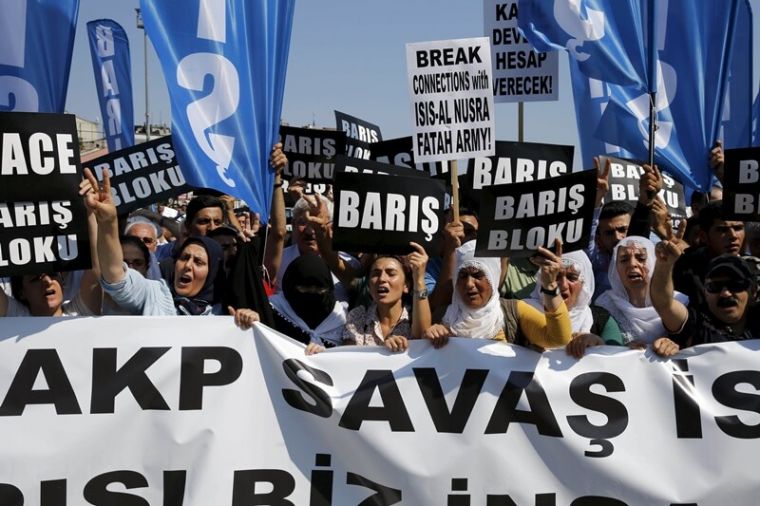Mideast turns messier as Turkey attacks both ISIS and US-allied Kurdish forces

Turkey has finally joined the fight against the Islamic State, but at the same time it has thrown a monkey wrench into the regional conflict as its forces have also resumed their attacks on Kurdish forces, who are fighting on the side of the US and engaging ISIS fighters on the ground.
Reversing his country's policy, Turkish President Recep Tayyip Erdogan said Turkey is now part of the airstrike operations against ISIS. However, Turkish warplanes have also started bombing camps in northern Iraq belonging to the Kurdistan Worker's Party, which is linked to the US-supported Kurdish militias, known as the YPG. The Kurdish militias are fighting head-on against ISIS and have achieved gains in weeding out Islamist militants and reclaiming ISIS-controlled areas, NBC News said.
Until last week, Turkey was hell-bent on unseating Syrian President Bashar al-Assad, while its lack of interest in joining the anti-ISIS coalition received criticism. In the wake of a deadly assault by ISIS on its territory, specifically in the town of Suruc, Turkey changed its policy and allowed its warplanes to take part in US-led airstrikes on ISIS targets.
But Turkish warplanes not only hit ISIS targets in Syria but also camps of the Kurdistan Workers' Party, which it considers a terrorist group.
This effectively cancelled a 2013 ceasefire deal between Turkey and the Kurdistan Workers' Party, which has been waging a three-decade-long insurgency against Turkey.
While the US depends heavily on Kurdish militias, Washington and the European Union consider the militants belonging to the Kurdistan Workers' Party as terrorists just like the ISIS jihadists.
"It's a mess," said Fadi Hakura, an analyst from London-based Chatham House think tank. "The YPG is an ally of the US but a foe or enemy of Turkey."
This has left the US in a very uncomfortable position; it had to make sure its allies are not alienated while keeping Turkey, which boasts of having NATO's second-largest army as well as an important geographic position, having to share frontiers with Syria and Iraq.
"It's a very, very delicate and complex balancing act that the US will need to undertake to keep Turkey on side in the fight against the Islamic State while continuing military cooperation and coordination with the YPG in northern Syria," Hakura said.
"It's a very dangerous game," Hakura warned. "It's easy to enter a war but very challenging to get out of one."
The Turkish government sees recent Kurdish successes as a threat, according to Ege Seckin, a Turkey analyst for IHS Country Risk.
Kurdish efforts to gain autonomy are more worrisome for the Turkish government than the threat posed by ISIS.
"Turkey's interest is to fight the PKK," Seckin said. "ISIS is at most a secondary concern from Turkey's point of view."











